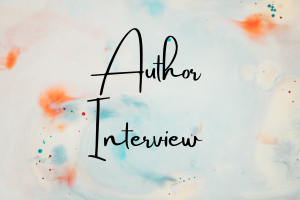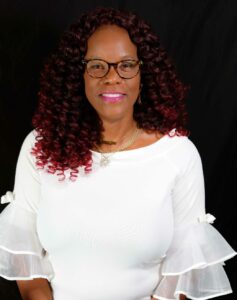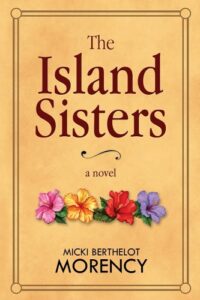Don’t Be Silent: An Interview with Micki Berthelot Morency
 Author Micki Berthelot Morency is an author to watch. Her writing skillfully weaves character development with plot and setting, and she approaches difficult topics with grace. Her debut novel, The Island Sisters, which released earlier this year with BHC press, is a poignant look into four lives, all affected by domestic violence. The story was a finalist in the Women’s Fiction Writers Association (WFWA) Rising Star contest, and it’s been well-received by readers and reviewers alike. Katia Ulysse, author of Drifting and Mouths Don’t Speak, wrote of the book: “We want to leap into the pages and fight alongside the victims of unspeakable abuse. The sisters on these various islands, as the author says, are our kinfolk. We know them. We sit near them in classrooms, professional offices, in airplanes; we see them—too often without seeing them.” That’s what I love most about Micki’s writing—that she’s not afraid to tackle the hard subjects so that readers can be educated. If you haven’t read the novel yet, I suggest that you do. Many thanks to Micki for taking time to answer my questions!
Author Micki Berthelot Morency is an author to watch. Her writing skillfully weaves character development with plot and setting, and she approaches difficult topics with grace. Her debut novel, The Island Sisters, which released earlier this year with BHC press, is a poignant look into four lives, all affected by domestic violence. The story was a finalist in the Women’s Fiction Writers Association (WFWA) Rising Star contest, and it’s been well-received by readers and reviewers alike. Katia Ulysse, author of Drifting and Mouths Don’t Speak, wrote of the book: “We want to leap into the pages and fight alongside the victims of unspeakable abuse. The sisters on these various islands, as the author says, are our kinfolk. We know them. We sit near them in classrooms, professional offices, in airplanes; we see them—too often without seeing them.” That’s what I love most about Micki’s writing—that she’s not afraid to tackle the hard subjects so that readers can be educated. If you haven’t read the novel yet, I suggest that you do. Many thanks to Micki for taking time to answer my questions!
Christina: Congrats on your debut, The Island Sisters! The story features four strong voices—Monique, Cecilia, Lanei, and Ella. Do these women possess any traits you wish you possessed?
Micki: Their patience, perhaps. I’m not the most patient person, particularly when the situation is not beneficial to me
Christina: Books with multiple points of view are my favorite. What was your writing process like to make sure that these four voices were distinct? Was one easier to write than the others? How did you juggle their plotlines?
Micki: It wasn’t easy since this is the first manuscript I’ve ever written. I was prepared to write three or more before I’d get published, then this happened. This book is the result of many drafts then I realized I had to write each woman story separately so I knew who she was outside of the friendship that will bind them. They needed to be their own person first before I brought them together as a tribe.
Christina: You’re the middle child of seven siblings. Did you play the mediator? Do your family and the relationships within impact your writing?
Micki: Yeah, as a middle child, I felt unseen, unheard at times. I needed to assert myself, and I decided to be the best student I could be, and my parents noticed. I was a serious kid, so my siblings turned to me to settle disputes, and I’m still doing it.
Christina: The Island Sisters tackles domestic violence head-on. Why this important issue? How much research did you have to do?
Micki: I had the privilege of case-managing clients at a long-term transitional housing for women, so I had my characters. I chose to place them in three different islands—Haiti, Guam and St Thomas—because I was born in Haiti, and I lived on the other two for a period of time. I wanted to show how universal and pervasive domestic violence is. It doesn’t know any barriers. Besides, the island settings add plenty of spices to the story.

Christina: Despite the heavy themes, the book is hopeful. How did you find the right balance so that the heavy themes didn’t weigh the reader down?
Micki: Because we are not defined by our circumstances. The characters are not only victims of abuse, they are also students, daughters, sisters, friends, mothers, professionals, dreamers, survivors . . . By showing the reader that they want the same things in life that we want. They have to overcome obstacles that, at times, come with the culture they did not choose to be born into but defines the course of their lives. It takes courage to break cycles and stigma.
Christina: Carolle Jean-Murat, MD, FACOG, author of Miraculous Cancer Remission, wrote of the book, “In Micki Berthelot Morency’s riveting novel, as we follow the women through therapy, life experiences, growth, we can see that help is always available and that victims can become winners.” But it’s so hard to ask for help. Do you have any tips for those folks who aren’t sure how to ask for help?
Micki: Absolutely and it’s simple. We have so many opportunities in life to try to accomplish things on our own, but surviving abuse is NOT one of them. Abuse victims are typically made to believe they are responsible for their lot by their abusers, sometimes even society. They are NOT, and help is available even more now than a few decades ago. I tell women to watch for the early signs and leave. It’s never your job to fix abusers, but it’s your responsibility to protect yourself and your children. Don’t be silent. Your silence gives them power over you.
Christina: I love the tagline on your website: EVERYDAY AFFORDS US THE OPPORTUNITY TO BE BETTER. What are some small, easy ways we can try to be better people every day? Is there something you do each and every day to be better (and that you’re willing to share)?
Micki: I learn that from the strong and generous women who have raised me. My grandmother used to say before falling at sleep every night, think about how you could have helped somebody in any small way you could have that day. In her time back home in Haiti, it was sharing our meager resources for the day with a family that had less. In mine it’s helping someone nab
Christina: What does literary success mean to you?
Micki: That readers find relevance in my books and it positively impacts their lives even in very small ways.
Christina: What’s next for you?
Micki: I’ve completed a second manuscript. A mother-daughter story that I love very much and I’m drafting a third. I wish I had more time to write. Hopefully soon. I have to let some things go.
Micki can be found in multiple places!
Website: https://www.mickimorency.com/
Instagram: mickimorency3588
Facebook: @micki.morency.1
Twitter: @mickimorency
Thanks to Micki for agreeing to this interview! If you know of an artist, author, or podcaster who’d like to be featured in an interview (or you are an author who would like to be featured), feel free to leave a comment or email me via my contact page.

